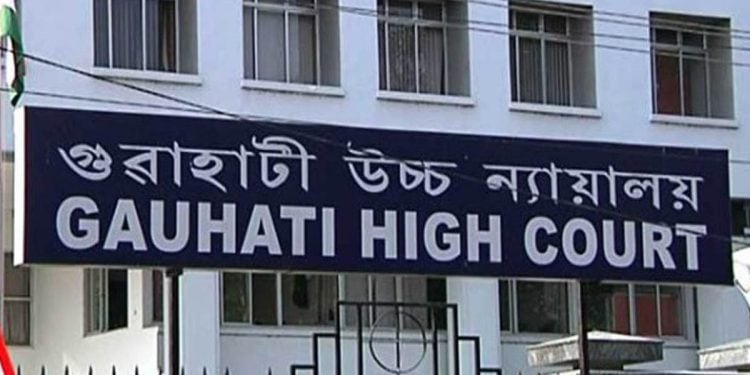The Gauhati High Court has held that denial of admission to a candidate with no fault is a violation of the principles embodied in Article 14 of the Constitution. The Court said this on Tuesday when hearing a petition under Article 226 of the Constitution.
The petitioner challenged the legality and validity of Rule 4 (2)(b) of the Medical Colleges and Dental Colleges of Assam (Regulation of Admission into 1st year MBBS/BDS Courses) Rules, 2017 and prayed to set aside and quash the decision dated 02.07.2019 of the Counselling Committee whereby the candidature of the petitioner for admission into the MBBS course was rejected.
The petitioner was called to attend the Counselling Session for the selection process for admission into MBBS/BDS Courses for the session 2019 by the Director of Medical Education (DME), Assam as she has secured 693rd position in All Assam Ranking. Accordingly, the petitioner appeared in the Counselling Session on 02.07.2019 but her candidature was rejected by the Counseling Committee on the ground that the petitioner had done 10+2 from NIOS.
Petitioner’s counsel Chamuah submitted that there was no reason for the respondent authorities to deny admission to the petitioner into the MBBS Course on the ground that her qualification at 10+2 stage from the NIOS was contrary to the Medical Colleges and Dental Colleges of Assam (Regulation of Admission into 1st year MBBS/BDS Courses) Rules, 2017.
It has been further submitted that after the advent of NEET pursuant to incorporation of Section 10D in the Indian Medical Council Act, 1956 (‘the IMC Act, 1956’, for short), it is the score obtained in the NEET which is the sole criteria for admission into the MBBS/BDS Course all throughout India in so far as the criteria of merit is concerned, provided the candidate has the qualification prescribed by the MCI. It is not open for any individual state to put another qualification in so far as the eligibility at 10+2 stage is concerned. In such view of the matter, he submits, the eligibility prescribed in Rule 4 (2)(b) in the 2017 Rules that the candidate had to pass all four subjects i.e. Physics, Chemistry, Biology/Biotechnology and English of the qualifying examination in the same sitting runs contrary to the scheme envisaged under Section 10D of the IMC Act, 1956 and the MCI Regulations, 1997, as amended, and, thus, Rule 4 (2)(b) of the 2017 Rules is liable to be declared ultra vires.
Opposing the submissions made by petitioner, the counsel for respondent contended that the petitioner failed in the subject of Physics in Class-XII examination held in the year 2012 and she passed in the subject of Physics only in 2013 on a separate sitting. As such, the petitioner did not fulfil the criteria laid down in Rule 4 (2)(b) of the 2017 Rules.
After going through all the facts presented and arguments made, the Court was of the opinion, “It is the legal position that if a provision in a State legislation is repugnant to any provision in a Central legislation including sub-ordinate legislation irrespective of the fact whether the State legislation was passed before or after the Central legislation, it is the Central legislation which will prevail.”
Considering all the above facts, Court has directed that the respondent authorities, more particularly, the Director of Medical Education, Assam shall consider the case of the petitioner for admission into the MBBS course in any of the medical colleges under the state in her respective category as per her entitlement. And this entire exercise shall be carried out on or before December 31, 2020.
Also Read: Delhi govt tells Delhi HC decision on reserving ICU beds in pvt hospitals soon
The Court held that,
“The petitioner was denied admission into the MBBS course unjustifiably, arbitrarily and illegally. Thus, the petitioner was denied of a fair treatment. Accordingly, we are of the considered view that Rule 4 (2)(b) of the 2017 Rules is repugnant to Section 10D of the IMC Act, 1956 and the MCI Regulations, 1997, as amended, and it is ultra vires. As a result, we strike down Rule 4(2)(b) of the 2017 Rules.”



